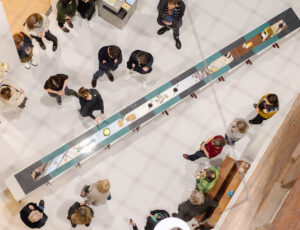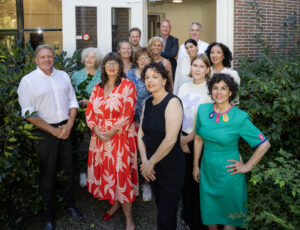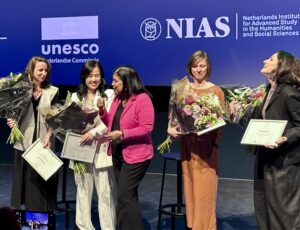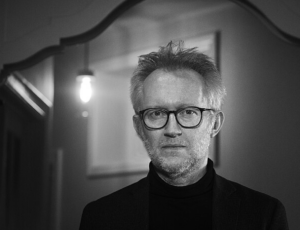Johan Rooryck, Professor of French Linguistics from Leiden University, wins the third Distinguished Lorentz Fellowship. At NIAS Rooryck will explore how core knowledge systems apply to the Humanities and Social Sciences. This will also be the topic of his interdisciplinary workshop at the Lorentz Center.
Infants have the ability to identify a moving object as a single complete entity even when it is wholly or partially occluded from view. This is shown by experiments in which a moving doll is occluded by an obstacle before reappearing. If the reappearing doll has a different shape, the infants look at it longer than when the doll keeps its original shape. Infants tend to look longer at unexpected events than at expected ones. Infants seem to expect objects to reappear in the same shape without prior learning. Such skills are characteristic of the innate core knowledge system associated with object representation. Other core knowledge systems, such as the representation of actions and participants, numerosity, and social interaction, each have their own unique set of properties that contribute to the construction of early mental representations. Through interaction with language, these systems provide the cognitive foundation for the development of cultural and social skills.
As Distinguished Lorentz Fellow at NIAS, Rooryck will research the possible impact of core knowledge systems on the Humanities and Social Science. Moral judgments, mathematics, geometry, music, cultural artifacts, navigation, and even language are usually viewed as cultural achievements. What will it mean for researchers in the humanities to investigate these domains as the result of ‘internalist’, biologically determined human abilities, rather than as ‘externalist’ products of culture and nurture?
The international workshop at the Lorentz Center is part of the fellowship and will bring together cognition researchers from the fields of neurology, psychology and biology to discuss these topics with scholars from the Humanities and Social Sciences.
The Distinguished Lorentz Fellowship is awarded to eminent researchers who can bridge the gap between the Humanities, the Social Sciences and Natural Sciences. Successful research projects are both interdisciplinary and socially relevant. The Distinguished Lorentz prize of €10,000 is awarded by the Chair of the Lorentz Board Alexander Rinnooy Kan. The Fellowship is an initiative of NIAS and the Lorentz Center and is supported by the KNAW and NWO.



